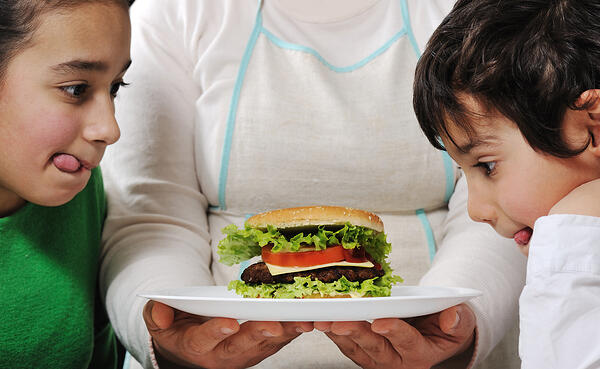
Yet that does not mean you have to go to bed hungry. If your stomach starts to rumble after dinner, you should opt for one of the below healthy snacks.
Bananas
Fruits can help you satisfy your late-night sweet cravings. Many fruits also provide added health benefits.
For instance, eating a banana before bed can help you fall asleep. Bananas contain lots of potassium, which helps the body relax and may even lower blood pressure. Bananas are also a great source of magnesium, which regulates the body’s internal clock. In addition, bananas feature serotonin, which the body can then convert to the sleep hormone melatonin.
Almonds also include magnesium and melatonin. They contain vitamin E and healthy fats, as well. A banana dipped in almond butter is thus an especially nutritious nighttime treat. Alternatively, you could slice up a banana and place it in a cup of oatmeal. Oatmeal contains complex carbohydrates that encourage serotonin release in the body.
Other Fruits
If you do not like the taste of bananas, there are other fruits you can eat at night, instead. Research shows that consuming tart cherries or drinking their juice before bed could help you get 90 minutes of additional sleep per night. Cherries also have anti-inflammatory properties and may reduce your risk of heart disease or arthritis.
Kiwis, meanwhile, could also help you fall asleep more quickly and stay asleep longer. Two kiwis contain just 93 calories, and they are also full of Vitamin C. You can even make a fruit salad with kiwis and pineapples. The latter fruit could increase your melatonin levels by over 250 percent.
Sometimes, hunger pangs are a sign of dehydration. If you believe you are not drinking enough water during the day, try eating a slice of watermelon at night. This fruit has antioxidants and nutrients that enhance sleep quality. It also contains plenty of water.
Seeds and Nuts
Nuts and seeds are healthy sources of melatonin, as well. Pistachios, in particular, contain approximately 6.5 milligrams of melatonin per ounce. They also have the amino acid tryptophan, which helps the body make both melatonin and serotonin. Other snacks with tryptophan include sesame seeds and pumpkin seeds.
Walnuts additionally feature melatonin. Just be wary of salted or flavored varieties of nuts. They contain high levels of sodium that could leave you dehydrated and raise your blood pressure.
Yogurt
Calcium is another nutrient that has been linked to better sleep. Yogurt contains plenty of it. In fact, one 100-gram serving of plain yogurt contains more than 100 milligrams of calcium. Yogurt also features other sleep-enhancing vitamins and minerals, including vitamins B12 and B6.
Greek yogurt is particularly healthy because it also contains probiotics that keep your gut working as it should. As with nuts, any yogurt you eat before bed should be low in sugar. Avoid flavored varieties and instead top plain yogurt with brown sugar, unsweetened fruits, agave or a bit of honey.
Vegetables
If you crave something crunchy at night, skip the store-bought potato chips and opt for bell pepper or celery. Both are quite tasty and full of vitamins and minerals.
You can dip either of these vegetables in hummus or cottage cheese. Low-Sodium cottage cheese contains important nutrients and proteins. Hummus, meanwhile, has healthy fats and should keep you full all night.
If you have extra time before bed, you can even create homemade vegetable chips. Simply slice up zucchini or sweet potatoes and throw them in the air fryer or oven.
You can still have a snack before bedtime without negatively affecting your health. The above foods are nutritious and should help you fall asleep at night.
TIPS FOR A BETTER NIGHT’S SLEEP
Getting into a consistent sleep routine will improve your overall health and you may start to see subtle improvements in blood sugar as well. The following tips sleep tips may help to promote better sleep:
Check and monitor your blood glucose to keep it under control
Establish a regular bedtime routine
Ensure your bed is large and comfortable enough
Ensure your room is cool and well ventilated
Ensure your room is dark and free from noise
Incorporating a period of exercise into each day
If you’re going to snack, snack wisely. Skip the junk food, instead choosing complex carbs like whole grains, fruits, or vegetables, paired with protein or a small amount of fat.
The bottom line? Do what works for you. Pay attention to your body’s signals, consider discussing it with your doctor, and you’ll be able to determine if you should stop eating early in the evening or if it’s ok to indulge in a midnight snack.
To stay informed on more information regarding food and sleep issues, subscribe to our blog. You can always contact us here at The Alaska Sleep Clinic with any questions regarding your sleep at @ 907-770-9104.
.












